29 Oct 2024
Save the date – WISE Welcome Meeting 2025
Mark your calendar for August 20-21, 2025!
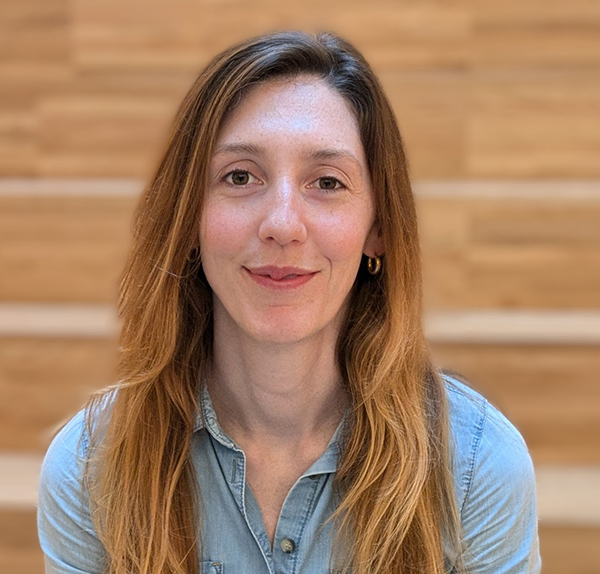
8 Nov 2024
In this series of interviews, you will meet the WISE Fellows. This time you will meet Professor Catherine Aitchinson, who has joined Linköping University as a WISE Fellow.
You will also be able to find out more about the fellow’s research here.
Catherine holds an MSci in Natural Sciences from the University of Cambridge, her research project was in supramolecular chemistry, working on self-assembled metal-organic capsules with Prof. Jonathan Nitschke. She later pursued a PhD at the University of Liverpool with Prof. Andy Copper, focusing on organic semiconductors for solar fuels, honing her skills in optimizing material properties.
During her postdoc at the University of Oxford under Prof. Iain McCulloch, she worked on advancing research in photocatalysis and organic photovoltaics (OPV) with donor-acceptor polymers. Her work underscores the role of chemical design in creating renewable energy solutions. At LiU her group will focus on synthesizing and studying organic materials with self-assembled microstructures that aid in function.
Why did you choose to join WISE?
A few reasons! The network of materials scientists you are immediately exposed to is attractive when you are just starting out. It feels like a supportive environment and there are exciting possibilities for collaboration and discussion. I particularly like the level of freedom afforded to WISE researchers; you have the time and space to be ambitious without worrying about hitting arbitrary milestones. The WISE package is also very generous in terms of resources which means you are under a little less pressure with applying for more funding and can hopefully spend more time actually doing research.
Briefly describe your research area.
I work on designing, synthesizing, and testing conjugated organic materials, primarily for photocatalytic solar fuels production but also some photovoltaics and energy storage applications. A theme in my work is making materials with microstructures that aid in function.
What are the sustainability aspects of your research?
I make materials to aid in the production and storage of renewable energy. I also focus on organic materials which are more earth abundant and more easily processed than most inorganic alternatives.
What are the benefits of your research for society in the future?
Hopefully making materials that will help to industrialize the production of solar fuels or that will improve existing renewable energy technologies.
Are there specific industries, products, or other areas where you see the results of your research being implemented?
Modular solar fuels devices. These could be used in remote areas to make hydrogen or other chemical fuels. That would be the ultimate goal.
Have you always, even as a child, been interested in becoming a researcher?
I have always been open to the idea, but it was really during my PhD, enjoying being in the lab and doing research that made me realize this is definitely what I want to do.
Why did you pick this research expertise?
I wanted to work in renewable energy, but I also loved organic chemistry. Organic semiconductors seemed like the obvious choice.

29 Oct 2024
Mark your calendar for August 20-21, 2025!

24 Oct 2024
On November 15, 2024, from 13:00 to 14:00, Umeå University will host a digital event titled Green and Bright Technologies and Materials, featuring two leading experts.
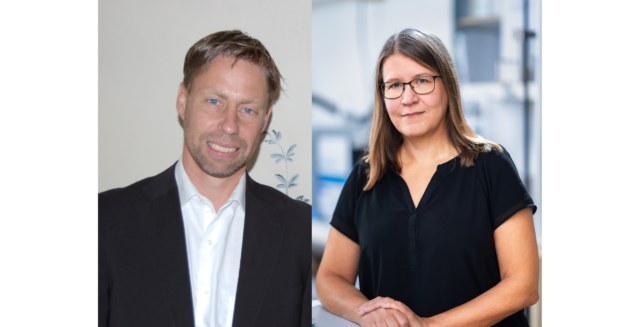
22 Oct 2024
We are pleased to introduce Professor Ludvig Edman from Umeå University and Professor Minna Hakkarainen from KTH Royal Institute of Technology. They are leading two WISE projects, connected by a shared focus on circularity.
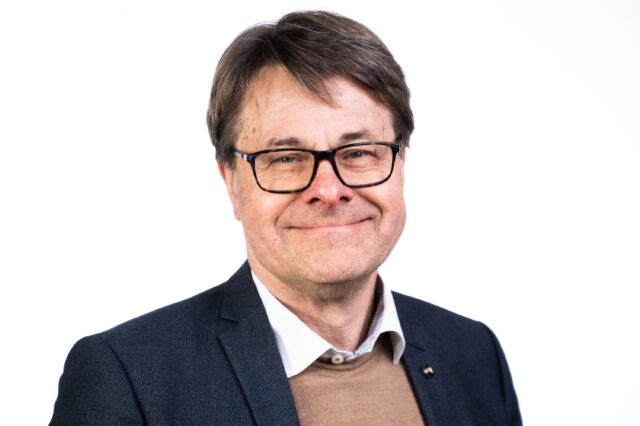
16 Oct 2024
-As WISE grows, my activities are shifting a bit and, now I focus more on the program’s societal impact, and how to ensure that WISE research achieves its full potential in making a positive difference, says Peter Värbrand, Emeritus Professor at Linköping University and WISE’s senior adviser.

16 Oct 2024
We’re excited to announce that we’ve recently updated and improved our website’s navigation menu!
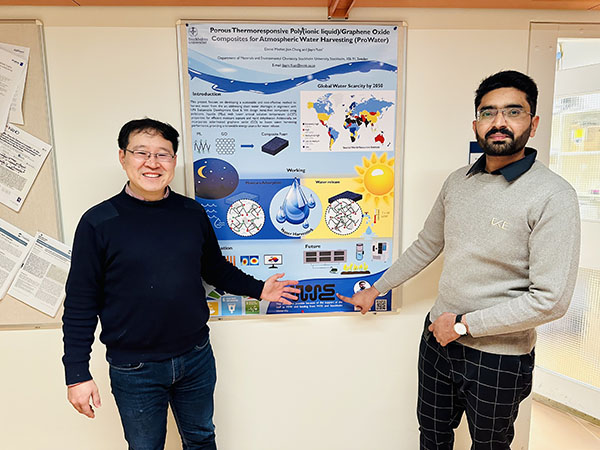
14 Oct 2024
Insights from Danial Mazhar, Poster Winner at Welcome Meeting 2024
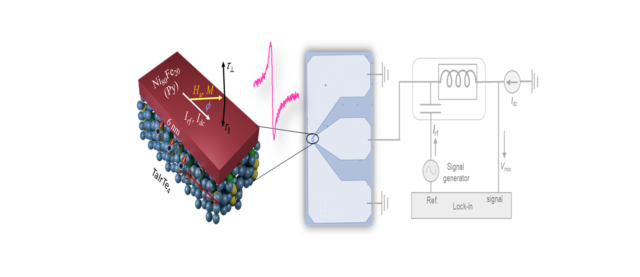
3 Oct 2024
A recent study led by WISE researcher, Prof. Saroj Dash from Chalmers, published in Nature Communications identifies TaIrTe4 as a promising material for energy-efficient devices such as spintronic memories, logic circuits, high-frequency magnetic devices, and neuromorphic computing.
[Picture: Experimental set up utilized in this investigation. Courtesy of Dr. Bainsla.]
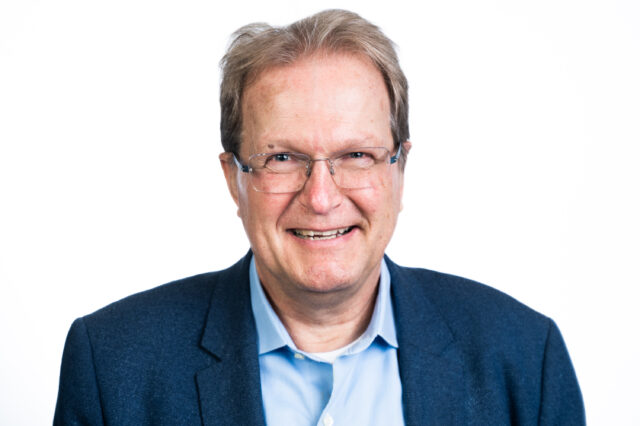
3 Oct 2024
WISE is very proud to have outstanding professors participating in the program. In this occasion we are happy to introduce Professor Anders Nilsson.
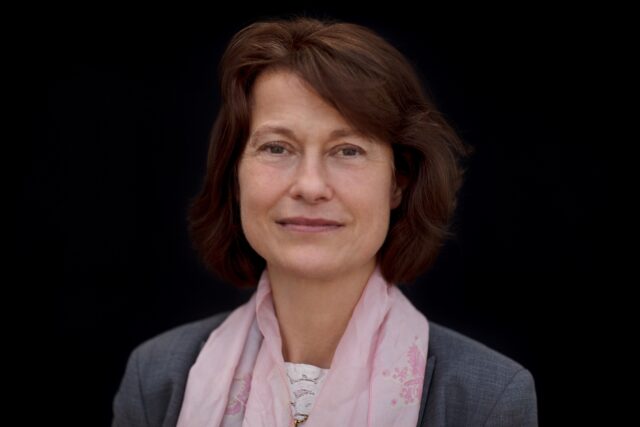
1 Oct 2024
The Royal Swedish Academy of Sciences has elected two new Swedish members to the Class for humanities and for outstanding services to science, Marika Hedin and Sara Mazur.
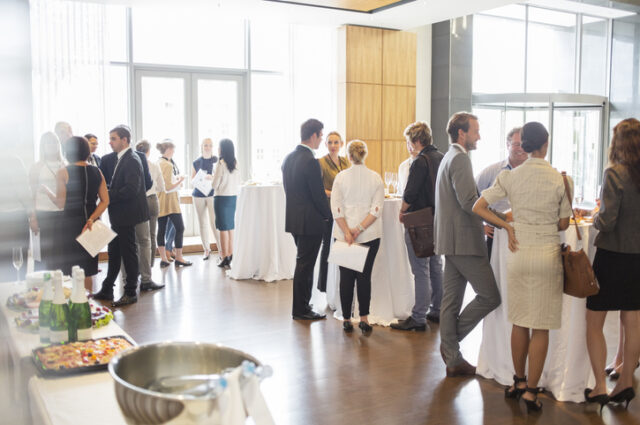
30 Sep 2024
WISE Networking Day 2025 is now open for registration.
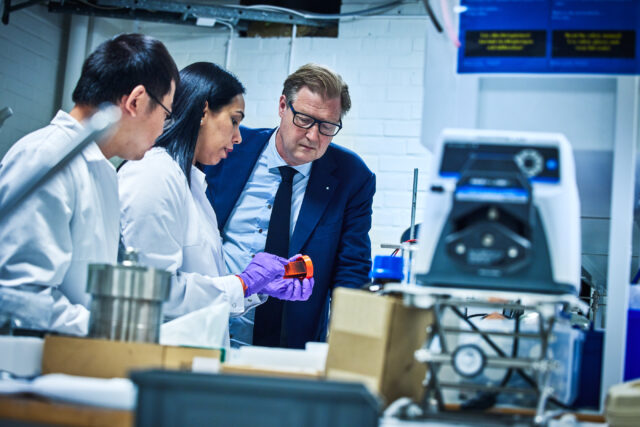
20 Sep 2024
In a recent publication in Advanced Materials WISE researcher, Prof. Leif Asp and his team explored structural batteries that store energy while also supporting mechanical loads, promoting sustainability by reducing weight in products like cars. This breakthrough could significantly enhance the efficiency of electric vehicles, drones, and electronics.
[Picture: Richa Chaudhary, Zhenyuan Xia, and Leif Asp from Chalmers. Credit: Chalmers | Henrik Sandsjö]
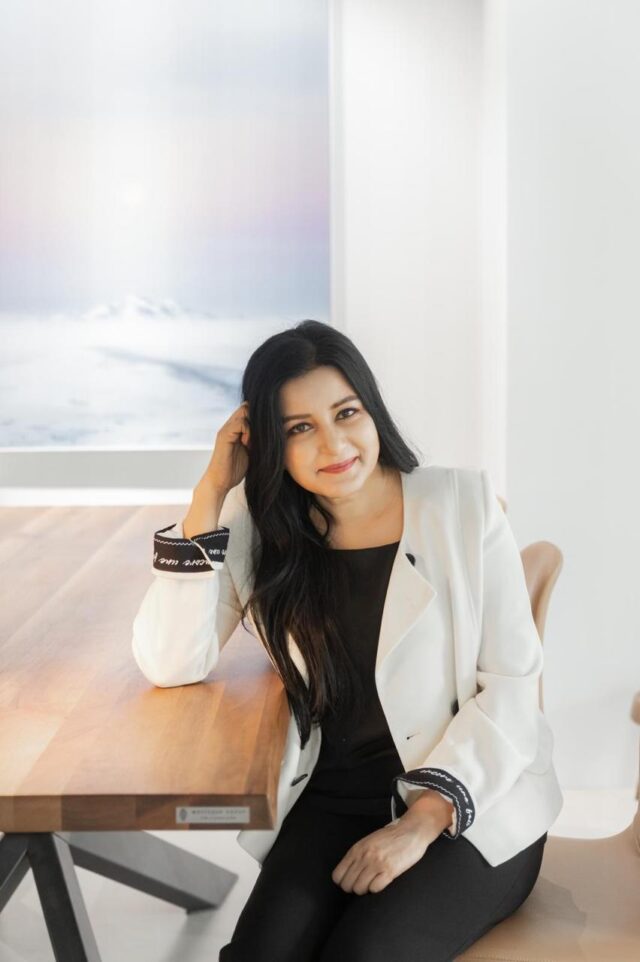
19 Sep 2024
In this series of interviews, you will meet the WISE Fellows. This time you will meet Sadia Ilyas, who has joined Luleå University of Technology as a WISE Fellow.
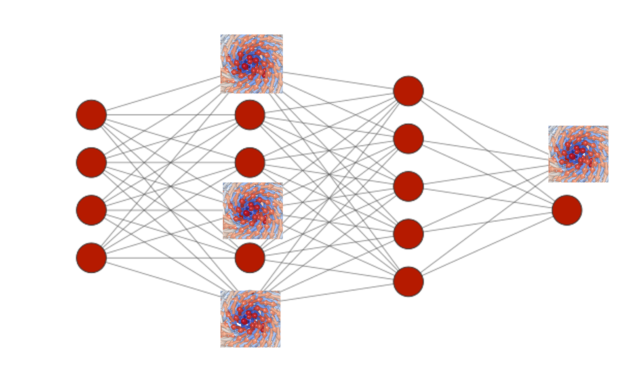
19 Sep 2024
The third seminar in the series: Machine Learning meets Materials Science is coming up on September 26. Don’t miss out on this chance to connect with leading minds in these two fields and explore how these powerful disciplines intersect to shape the future of science and technology.
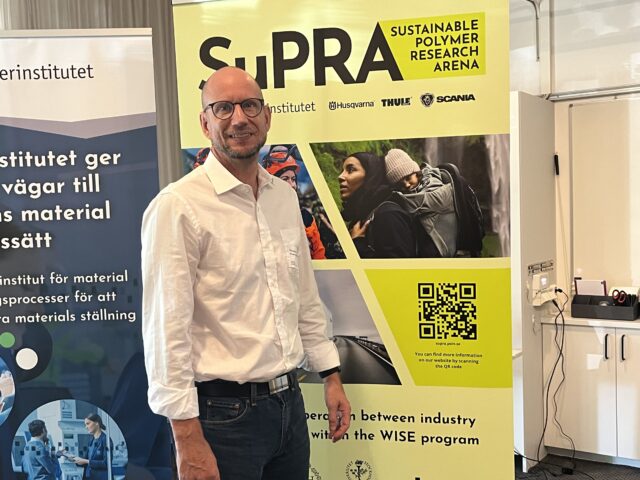
11 Sep 2024
Cooperation between academia and industry is an important part of WISE. We have talked to Christer Svanberg, CTO at Nexam Chemical, who together with Professor Christian Müller at Chalmers University of Technology runs a WISE research project.
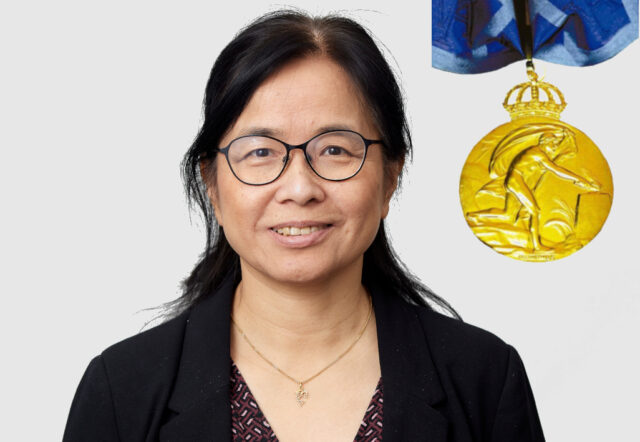
11 Sep 2024
The Royal Swedish Academy of Engineering Sciences (IVA) has awarded Professor Xiaodong Zou from Stockholm University and member of WISE URG, the prestigious IVA Gold Medal for her pioneering work in the development of electron crystallographic methods.

9 Sep 2024
131 applications were submitted in the second academic PhD and postdoc project call (“ap2”) from which 54 projects have been granted funding.
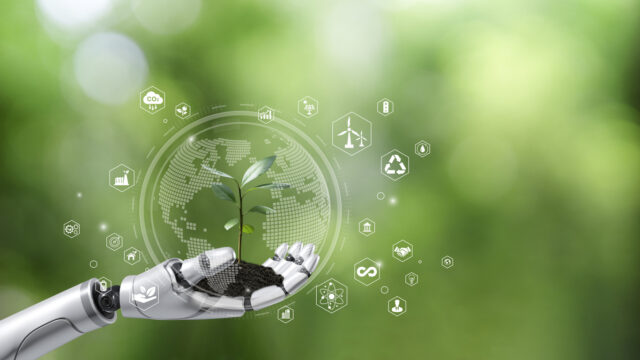
9 Sep 2024
Two new joint calls between the WASP and the WISE programs opened on Monday September 9, 2024.

6 Sep 2024
We are thrilled to announce the 1st WIRA-SET Webinar for Swedish Industry, an exclusive online event dedicated to advancing the electrochemistry sector.
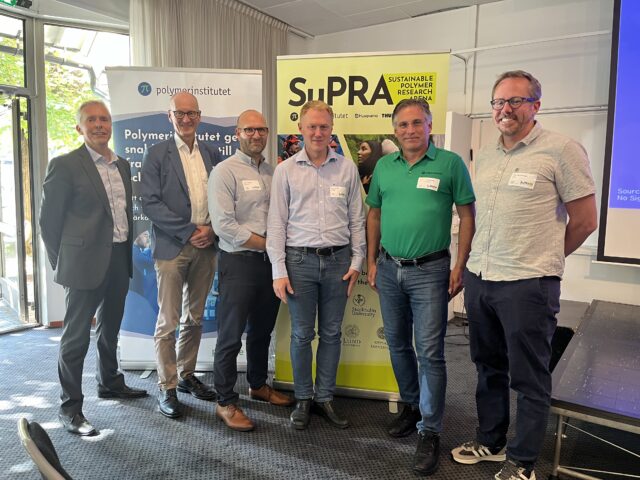
6 Sep 2024
WIRA-SuPRA organized their first large event in Södertälje on September 4-5. With over 80 participants from industry and academia, the event provided a dynamic platform for knowledge exchange and networking.
From the left: Anders Sjögren (Polymerinstitute), Magnus Svensson (WISE), Oscar Engbom (Husqvarna), Lars Jerpdal (SCANIA), Joakim Wiedesheim ( polymerinstitute) and Thor Gardarsson (Thule Group).
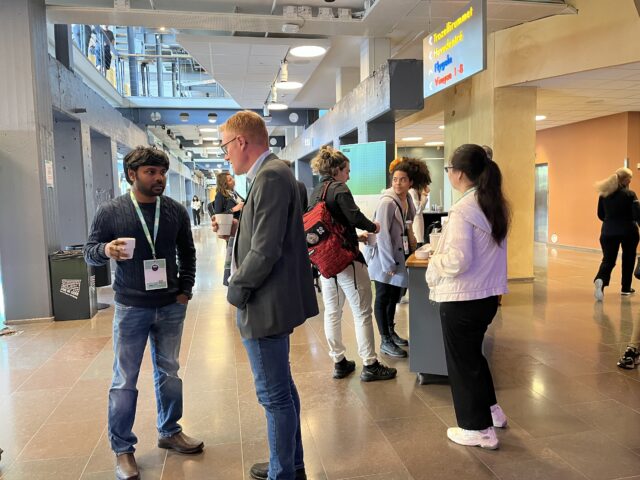
3 Sep 2024
This year’s Welcome Meeting 2024 is now all wrapped up. Over the course of two days newcomers to the WISE community got to learn more about WISE which is the largest research initiative ever in material science.

2 Sep 2024
Between 1 and 4 million SEK will be granted for innovation-targeting research projects, financed by Knut and Alice Wallenberg Foundation.

21 Aug 2024
With the intention to make this an annual event we now introduce the meeting place for Swedish industry and the WISE community. So save the date, January 28, 2025 and keep your eyes open for more information which will be published soon.

20 Aug 2024
A fantastic opportunity to gain insights and knowledge for the future.
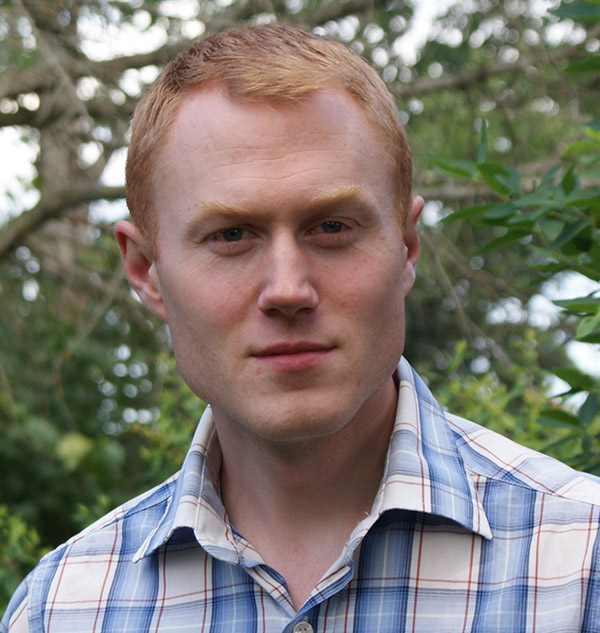
19 Aug 2024
We are happy to introduce Lars Jerpdal, one of our great speakers at WISE Welcome Meeting, taking place in Norrköping on August 26 -27.

12 Aug 2024
Up to 16 projects will be financed by the Knut and Alice Wallenberg foundation and conducted starting in 2025.

9 Aug 2024
Interested in innovations in high-strength steel engineering and critical raw material recycling and how this is driving the green transition? Then this webinar is for you!

24 Jun 2024
The call for KAW Proof of Concept Grants in Materials Science for Sustainability will open soon! Are you financed through Knut and Alice Wallenberg Foundation and have ideas for commercialization of your materials science results? This webinar is for you!

24 Jun 2024
In this series of interviews, you will meet the WISE Fellows. This time you will meet Matias Kagias, who has joined Lund University as an associate senior lecturer and WISE Fellow.
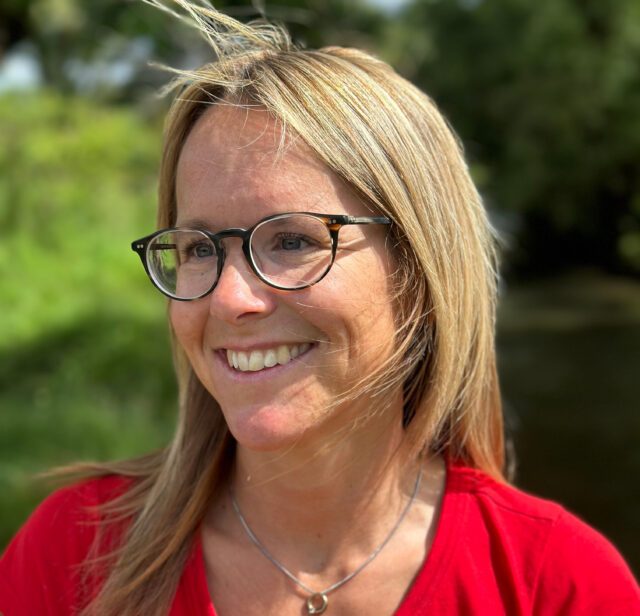
19 Jun 2024
WISE takes pride in showcasing our distinguished researchers, and this time, we are delighted to introduce Maria Messing, Professor at Lund University and Deputy Director of NanoLund: Center for Nanoscience.

12 Jun 2024
WASP and WISE opens two joint calls on September 9, 2024, offering the opportunity to apply for both large and small joint projects.